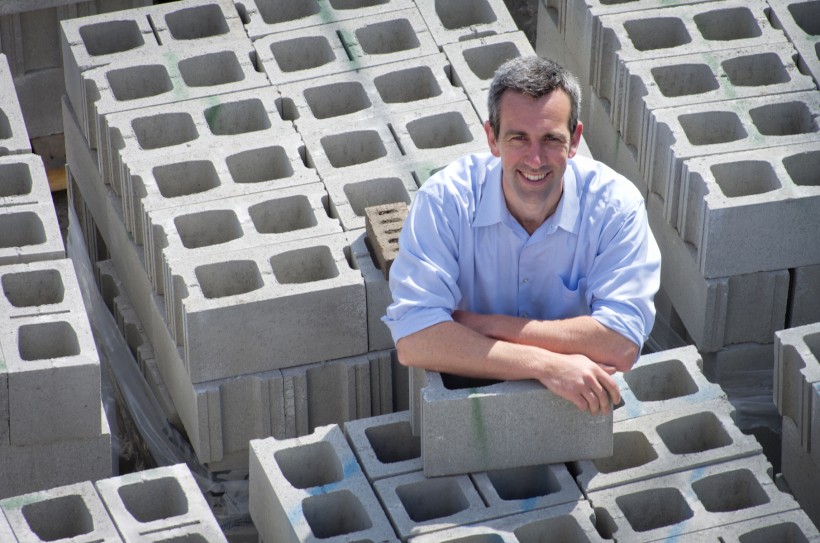Eight years after he attended a climate change conference as a student and realized that his carbon capture theory could help lessen climate change, Robert Niven is launching a ready-mix concrete product he expects to grow his company and cut pollution.
Niven is CEO and founder of Halifax’s CarbonCure Technologies, a clean-tech company that adds waste carbon dioxide to concrete production, thereby reducing CO2 emissions.
Concrete is the world’s most-used construction material, and it emits five per cent of total greenhouse gas emissions because traditional processes cure concrete blocks by heating them.
CarbonCure’s concrete looks and performs like regular concrete, is priced the same and is increasingly sought after, Niven said.
“Since January, CarbonCure has licensed its technology to 12 concrete factories in Canada and the U.S., with an additional 18 by the end of the year,” said Niven, who last year oversaw a Series B financing round of $3.5 million for the company’s expansion.
Back in 2006, Niven was an outdoors enthusiast and an environmental engineering student at McGill University when he attended a United Nations climate change conference in Montreal and realized the potential of his technology.
“Attending the conference put the significance and human side of the idea in context. I thought, I need to get this into the real world.”
The company raised its first round of funding in 2012. Since then, it has focused on injecting carbon into concrete blocks and other concrete masonry products. Niven said Atlantic Canada’s Shaw Group was the first industrial partner, and it sells CarbonCure to the local construction market. But the ready-mix concrete industry is about four times larger than the block market.
“Ready-mix has a larger potential to allow us to expand rapidly, and it is an important bridge to international markets,” said Niven, adding that no direct competitors use similar technology.
The company’s first ready-mix client is a well-known but as yet unnamed Halifax company. Other markets are much further away, including the Middle East and China, where Niven spends a lot of time.
“Bill Gates recently said that in the last three years, China has used as much concrete as the U.S. used in the last 100,” he said.
“We’re a wonderful fit for those countries that need to develop economically and can’t afford environmental degradation.”
The company’s growth in the ready-mix industry is assisted by the increasing global demand for green building materials that is being led by consumers, government regulators and forward-thinking investors.
Navigant Research predicts that the worldwide market for green construction materials will grow from $116 billion in 2013 to more than $254 billion in 2020.
“New rules introduced in November by the U.S. Green Building Council’s LEED certification program mean that building material manufacturers must report their environmental and health implications, including CO2 emissions,” Niven said.
“Despite concrete’s many sustainability attributes, concrete makers have lost market share to producers of perceived greener materials, like wood and steel that have done a better job of telling their green story.”
It has been a hectic ride bringing the venture to this point. Niven has been working on his company since 2007, when he used his environmental consulting business to support the development of the technology under the name Carbon Sense Solutions.
CarbonCure now has a Halifax team of 17. Niven has worked all along with Sean Monkman, a McGill classmate and the company’s vice-president of Technology Development.
Niven said the company benefited from the worldwide recession that hit while the technology was being developed and is set to profit from the economic upswing.
“When we were developing the technology, the industry was in the gutter so concrete plants were able to give us production time,” he said.
“And now the technology is ready to go, the economy is picking up. CarbonCure’s timing has been excellent.”
Disclaimer: Entrevestor receives financial support from government agencies that support startup companies in Atlantic Canada. The sponsoring agencies play no role in determining which companies and individuals are featured in this column, nor do they review columns before they are published.










